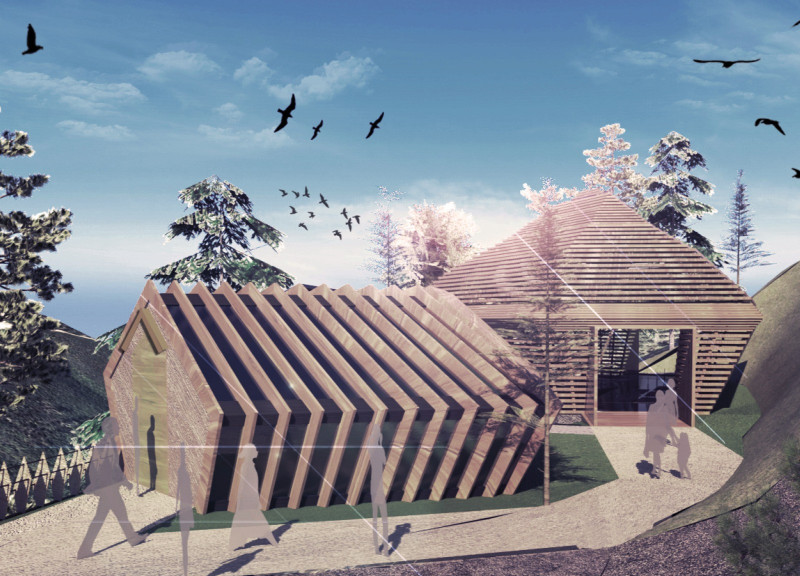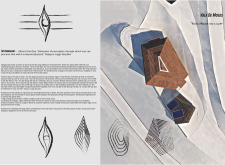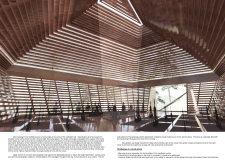5 key facts about this project
The TRIYAMBAKAM project combines elements of spirituality and functional space, set in an environment that encourages meditation and contemplation. It draws inspiration from the third eye of Shiva, aiming to foster deeper awareness and provide a peaceful setting for introspection. The design showcases a pavilion with unique shapes, creating a dialogue with the natural surroundings and inviting users to engage with their inner experiences.
Spatial Dynamics
The pavilion features a high ceiling that generates a sense of spaciousness, promoting an open and airy environment. This vertical design enhances the experience of meditation, allowing individuals to feel connected to something larger. A translucent exterior facilitates communication with the outdoors, letting light in while ensuring comfortable air circulation, both of which are crucial to the overall atmosphere.
Structural Integrity
A key aspect of the design is its dome construction, which employs a system of counterweight balance achieved by vertically arranged wooden beams. This not only supports the structure but also contributes to its aesthetic appeal while simplifying the building process. The architectural choices reflect important themes of balance and harmony, linking the project to its spiritual origins.
Materiality
Wood, obtained from local sources, serves as the main building material, reflecting a commitment to sustainability. This choice emphasizes the connection to the environment. Structured glass is used within the dome’s cupola, allowing natural light to illuminate central spaces, including the idol of Adiyogi in the meditation hall. This use of glass enhances the spiritual character of the space while fostering a relationship with the environment.
Zen Gardens
Zen gardens are thoughtfully placed toward the valley, enhancing the overall experience of tranquility. These spaces offer users opportunities for quiet reflection and engagement with nature. They work to blend the built environment with the landscape, reinforcing a sense of calm and connectivity.
The dome features detailed patterns that interact with light throughout the day, casting varied shadows and creating an ever-changing visual experience.























































